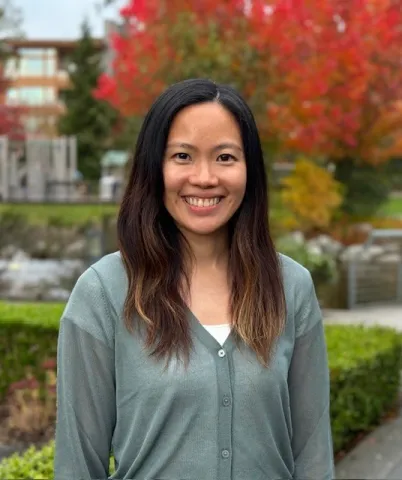
Heart Work, Hard Work: Sabrina Chow is on the Frontlines of Cardiac Care

For Sabrina Chow, working in cardiac electrophysiology is like solving a puzzle — one that requires precision, patience, and a deep understanding of the heart. As a cardiac electrophysiology technologist at St. Paul’s Hospital, she specializes in electrophysiology (EP) procedures and pacemakers, a rare and highly specialized skill set. “A lot of times, when a patient comes with an arrhythmia, we don’t necessarily know what we’re looking for,” she explains. “We find clues, put the puzzle together, and figure out which area of the heart to target for ablation.”
Her path into the field was shaped by both curiosity and personal experience. As a child, she watched her father struggle with a heart arrhythmia but never fully understood what was happening. That early exposure to cardiac arrhythmias, combined with a general interest in health care, led her to BCIT’s Cardiology Technology program. After starting her career at BC Children’s Hospital, she pursued further specialization in electrophysiology and cardiac rhythm devices. Just as she was completing her training, a full-time position opened at St. Paul’s, setting her on the path she’s on today.
EP technologists work on the electrical side of cardiology, helping to diagnose and treat heart arrythmias. “The heart is basically an electrical system and a plumbing system. If someone has a heart attack, that’s plumbing. If they have an arrhythmia, that’s us,” Sabrina explains. On any given day, she and her colleagues perform catheter ablations—a procedure that stops or prevents irregular heartbeats—and device implants, ensuring all equipment functions properly and assisting physicians in treating patients’ conditions.
For Sabrina, the most rewarding moments come when patients wake up after a procedure and realize their heart is functioning properly again. “When you see the relief on their faces, and on their families’ faces, it’s incredibly rewarding,” she says. “It’s rare that we get to see long-term results but in those moments, we know we’ve made a difference.”
Despite the vital role they play in patient care, EP technologists face severe staffing shortages. As a specialized subset of a larger profession, there is often no staff to backfill when someone is on leave or calls in sick, forcing an already small team to work short-staffed. This is compounded by the fact that training a new EP technologist takes at least a year, and currently, there’s no real pipeline bringing in new recruits at St. Paul’s Hospital.
One of the key challenges Sabrina sees is the disconnect between the level of specialization required and how that expertise is compensated. While EP technologists’ work are classified as a P2A special procedure, they are not compensated well for the extra school, licensing, and a predominantly unpaid practicum required to qualify as an EP technologist. For many cardiology technologists, investing the time to make this career change given the aforementioned challenges and to ultimately work in a more critical care setting is a tough pill to swallow. Sabrina has submitted a bargaining proposal regarding these issues to properly recognize those with highly specialized skill sets.
Outside of work, Sabrina stays grounded through her family, faith, and community. She spends her free time with her family, especially her grandparents, who have Alzheimer’s. “I just want to spend time with them before they forget who I am,” she says. She’s also deeply involved in her church community, volunteering her time whenever she can.
Though the challenges in her profession are immense, Sabrina remains hopeful that the changes she and her colleagues are advocating for will improve the profession for the future. Until then, she and her small but dedicated team at St. Paul’s will continue showing up every day, making a difference one heartbeat at a time.